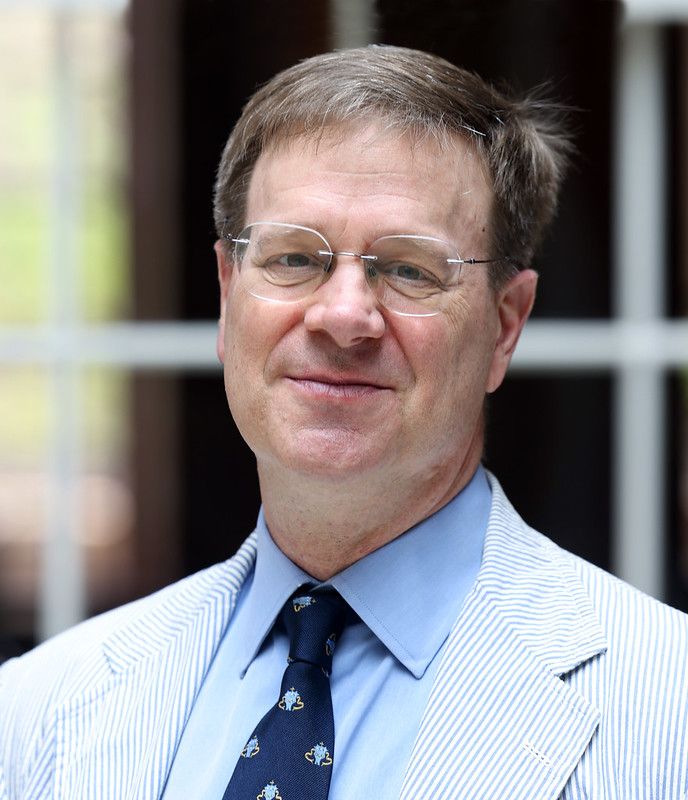G-70. Advanced Seminar in Critical Bibliography
Michael F. Suarez, S.J.
N.B. In 2017, enrollment for this course will be limited to RBS-Mellon Fellows or to students who have previously attended RBS course G-10 (Introduction to the Principles of Bibliographical Description) or G-45 (Analytical Bibliography) and who are currently engaged in a research project related to bibliography and material texts.
A bibliographer’s reach should seldom, if ever, exceed his (her) grasp, as there can be no substitute for the careful and knowing inspection, the haptic apprehension, of textual artifacts. Yet, it is also the case that the intellectual reach of bibliography extends far beyond its traditional work in service of textual criticism, however necessary and important that labor is.
The following course, which is designed as a workshop for fellows participating in the Andrew W. Mellon Fellowship of Scholars in Critical Bibliography, is organized along the following topics of intellectual inquiry:
– bibliography and related object-oriented disciplines (e.g., anthropology, archaeology, architecture, art history, museum studies);
– approaches to bibliographical explication;
– cultural practices (e.g., collecting) and production histories relating to material texts;
– texts in transition (e.g., editing histories, reception histories); and
– bibliographical pedagogy and remedying intellectual resistance to bibliography in the academy.
Participants will be asked to prepare 15-minute presentations based on their own current research projects that speak to one of the above topics and address the question “what is the intervention you are trying to make in your field?” Participants will also act as respondents for each others’ presentations. Participants may choose to circulate a published scholarly article in advance (by 17 April for the June offering of the course; by 1 May for the July offering of the course) that will inform their presentation and constitute part of the course’s reading list.
Accepted students will be assigned to prepare a written summary of one of the required readings for the course, and to lead class discussion of that reading assignment with another course participant. The written summary (300-word maximum) will be due via email the Friday before the course begins (2 June and 28 July in 2017).
Applicants to this course should submit a personal statement that contains a proposal for their presentation for the course. To guide that proposal, one or more of the following issues should be addressed:
- the bibliographical explication of a single textual artifact, or group of textual artifacts;
- the problems and/or possibilities of studying textual transmission;
- the study of practices (e.g., cultural, production-related, &c.) that help account for how a textual object came to be as it is;
- how understanding material instantiations of texts add to the interpretation or editing of a text;
- how an artifact or group of artifacts fits into the history of collecting, and what such histories can teach us about the formation and development of intellectual disciplines;
- how particular textual artifacts, or groups of artifacts, can be better understood using insights and methodologies from related object-oriented disciplines, such as anthropology, archaeology, architectural history, art history, museum studies, &c.;
- the relationship between one or more textual artifacts and their digital mediation, with special attention to attendant losses and gains in digital environments;
- intellectual resistance to bibliography in the study of a particular object-oriented subject—and the possibility of advancing effective remedies;
- demonstration of how different groups of textual artifacts are better understood by being brought into relation with each other.
Students should plan to bring a laptop to most course sessions.
Course History
Faculty

Michael F. Suarez, S.J.
Michael F. Suarez, S.J. has served as Director of Rare Book School, Professor of English, University Professor, and Honorary Curator of Special Collections at the University of Virginia since 2009. He formerly held a joint appointment as J. A. Kavanaugh Professor of English at Fordham University and as Fellow and Tutor in English at Campion Hall, Oxford University. He received a D.Phil., M.St., and M.A./B.A. from Oxford University; an M.Th. and M.Div. from the Weston Jesuit School of Theology; and a B.A. from Bucknell University. He has written widely on various aspects of eighteenth-century English literature, bibliography, and book history, and has held research fellowships from the Radcliffe Institute for Advanced Study at Harvard University, the National Endowment for the Humanities, the American Council of Learned Societies, and the Folger Shakespeare Library. He is a CLIR Distinguished Presidential Fellow, a member of the Advisory Board of the Library of Congress Literacy Awards Program, the Council of the Bibliographical Society of America, and the Board of Managers of the Lewis Walpole Library at Yale University.
Since 2010, he has served as Editor-in-Chief of Oxford Scholarly Editions Online. His recent books include The Cambridge History of the Book in Britain, Volume V, 1695–1830 (Cambridge University Press, 2009), co-edited with Michael Turner, and The Oxford Companion to the Book (Oxford University Press, 2010), a million-word reference work co-edited with H. R. Woudhuysen. The Book: A Global History, also co-edited with H. R. Woudhuysen, first appeared in 2013. In 2014, Oxford University Press published his edition of The Dublin Notebook, co-edited with Lesley Higgins, in the Collected Works of Gerard Manley Hopkins. He delivered the 2015 Lyell Lectures in Bibliography at the University of Oxford.
Full Bio »